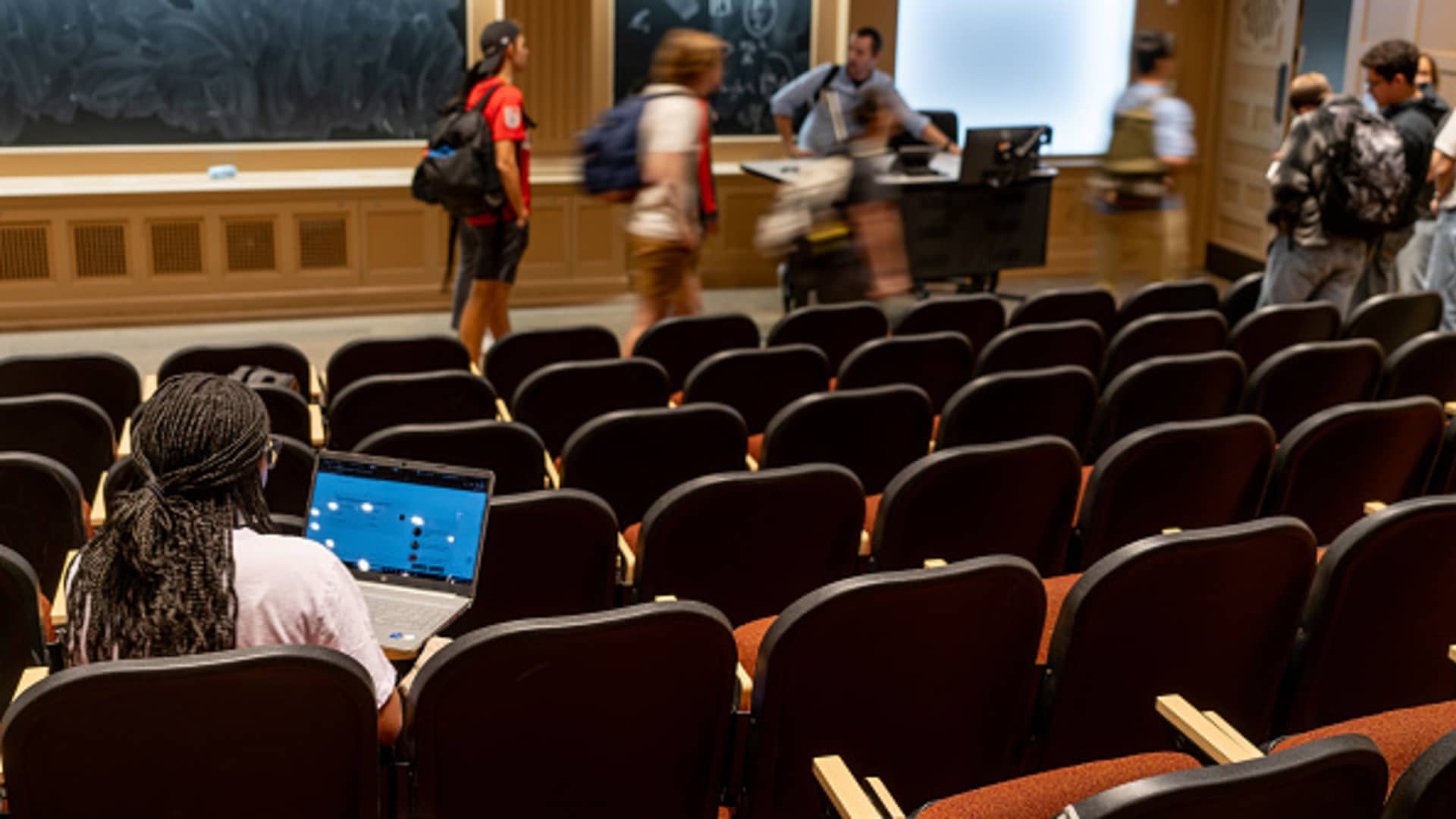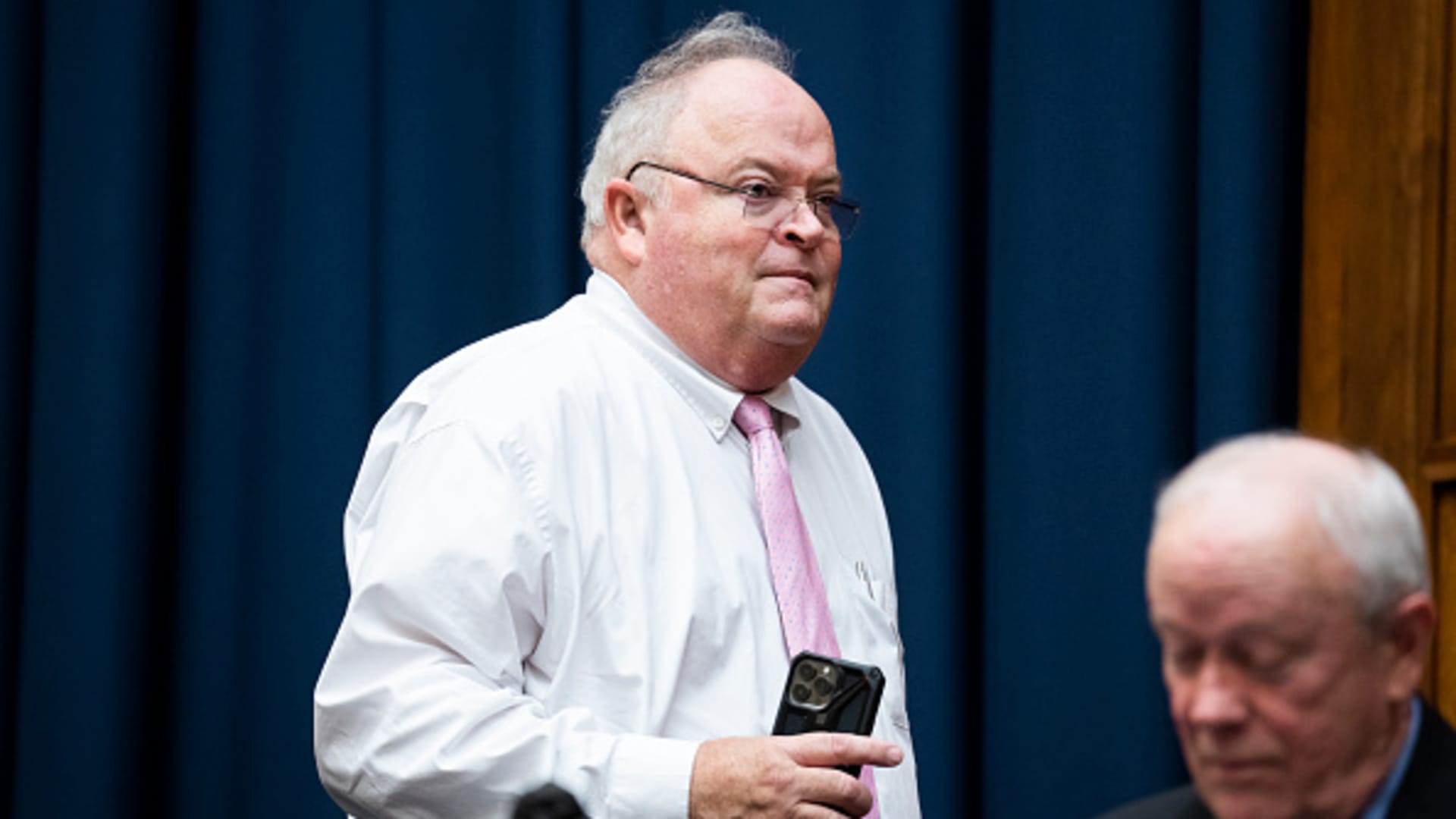franckreporter | Getty Images
Nearly 2 million federal student loan borrowers who’ve requested to be in an affordable repayment plan are stuck in a backlog of applications, waiting to be approved or denied, according to new data recently shared by the U.S. Department of Education.
The Education Department disclosed the information in a May 15 court filing in response to a legal challenge lodged by the American Federation of Teachers. The teachers’ union sued the Trump administration in March for shutting down access to income-driven repayment plan applications on the Education Department’s website.
IDR plans cap borrowers’ monthly bills at a share of their discretionary income with the aim of making their payments manageable.
More from Personal Finance:
House Republican bill calls for bigger child tax credit
Student loan borrowers in default may see 15% of Social Security benefit garnished
How college savers can manage 529 plans in a turbulent market
In late March, the Trump administration made the online applications available again, and said that it pulled the forms because it needed to make sure all repayment plans complied with a court order that blocked the Biden administration’s new IDR plan, known as SAVE, or the Saving on a Valuable Education plan.
Trump officials argued that the ruling had broader implications for other IDR plans, and it ended up removing the loan forgiveness component under some of the options.
The backlog complicates things for borrowers as the Trump administration restarts collection activity. The Education Department estimates that nearly 10 million people could be in default on their student loans within months.
Without access to an affordable repayment plan, student loan borrowers can be suspended on their timeline to loan forgiveness and at risk of falling behind and facing collection activity.
‘The opposite of government efficiency’
In the May court document, the Education Department disclosed that more than 1.98 million IDR applications remained pending as of the end of April. Only roughly 79,000 requests had been approved or denied during that month.
Consumer advocates slammed the findings.
“This filing confirms what borrowers have known for months: Their applications for loan relief have effectively been going into a void,” said Winston Berkman-Breen, legal director at the Student Borrower Protection Center.
The Center said that if the Education Department continued to move at its current rate, it would take more than two years to process the existing applications.
AFT President Randi Weingarten called the backlog “outrageous and unacceptable.”
“This is the opposite of government efficiency,” Weingarten said. “Millions of borrowers are being denied their legal right to an affordable repayment option.”
What’s behind the backlog
A spokesperson for the Education Dept. blamed the backlog on the Biden administration, saying that it “failed to process income-driven repayment applications for borrowers, artificially masking rising delinquency and default rates and promising illegal student loan forgiveness to win points with voters.”
“The Trump Administration is actively working with federal student loan servicers and hopes to clear the Biden backlog over the next few months,” they said.
The Biden administration put the student loan borrowers who’d enrolled in its new IDR plan, SAVE, into an interest-free forbearance while the GOP-led legal challenges to the program unfolded. Many of the currently pending IDR requests are likely from borrowers who are trying to leave that blocked plan to get into an available one.
Sarah Sattlemeyer, a project director at New America and senior advisor under the Biden administration, said that the current backlog began last year “and has existed across both the Biden and Trump administrations” as a result of the legal battle over the SAVE plan.
“It is a demonstration of how complicated the loan system is, how much uncertainty there has been over the last few years and what is at stake,” Sattlemeyer said. “There also isn’t clarity around how some applications in the backlog should or will be handled, such as those where a borrower chose an option that no longer exists on the application.”
In recent months, the Trump administration has terminated around half of the Education Department’s staff, including many of the people who helped assist borrowers.
That is also likely one reason why so many of the applications haven’t been processed, said higher education expert Mark Kantrowitz.
“Perhaps the reduction in staff is affecting their ability to process the forms,” Kantrowitz said.


 Economics1 week ago
Economics1 week ago
 Economics1 week ago
Economics1 week ago
 Personal Finance7 days ago
Personal Finance7 days ago
 Economics6 days ago
Economics6 days ago
 Personal Finance1 week ago
Personal Finance1 week ago
 Economics1 week ago
Economics1 week ago
 Economics5 days ago
Economics5 days ago
 Personal Finance1 week ago
Personal Finance1 week ago









